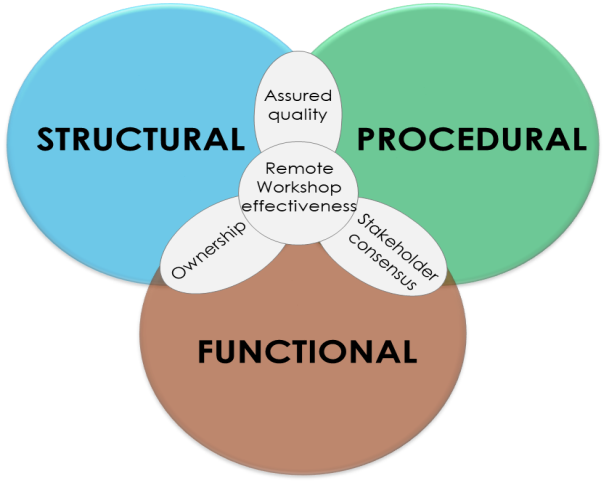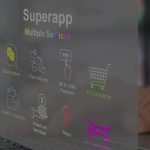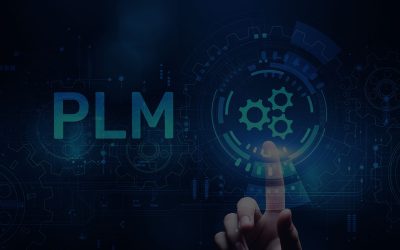How COVID-19 forced us to discover and freeze the design specs of a critical application using a remote workshop
This is a story about successful remote interaction made necessary by the restrictions on travel placed by the COVID-19 pandemic. Using remote collaboration, the business and IT teams of a motorcycle manufacturer could set up and execute a discovery program for their dealers—and by the time the workshops were concluded, we successfully concluded the design specs for mobile app development required for seamless end user experience and interface for the dealers.
We’ll roll back the story a bit. The motorcycle manufacturer (our customer) was keen to reduce design-to-market time for its new models by 33 %. To do this, they were implementing a PLM system. Over the last few years, ITC Infotech had moved the Design to Service phase and the Design to Engineering phase to a PLM platform. Later, the much more complex Design to Manufacturing phase was taken up. This engagement had already helped ITC Infotech with insights into the customer’s business.
Now imagine this: If the motorcycle manufacturer’s dealers cannot identify the right spare parts and order them, the dealers will end up with unhappy customers who think poorly of the motorcycle manufacturer. The reputation of the manufacturer would be deeply affected. The manufacturer would lose business and the brand would suffer unnecessary erosion.
To fix this problem, ITC Infotech had created a web-based Electronic Part Catalogue System (built on PTC technology) integrated with Dealer Management System (built on Microsoft Dynamics technology). The catalogue could be accessed over the desktop. Dealers logged in and selected the part number and quantity to order. The system told them what the part/s would cost and when they would be delivered. But the dealer’s employees don’t always sit in an office where they can access a desktop and login. They would be better enabled by an equivalent mobile version to order spares from any location. To extend the compatibility of the web application to mobile phones, without compromising on functionality, we needed to discover and understand the whitespaces on mobile devices. For this we had to conduct discovery workshops. Normally, this would not have been a problem. We would have been physically present at the client’s location for a face-to-face workshop. But with COVID-19 restricting travel this was impossible.
“Would remote design sessions and workshops with the business and IT team of the client be the solution?” we wondered. We were apprehensive because there were complex and nuanced processes to explain. Worse, if done incorrectly, the workshops could affect the quality of the deliverables. The situation challenged us to create new ways to conduct the workshop.
We love a technological challenge and this time we went full throttle!
For those trying to set up similar workshops, we have lessons to share. These can prove handy when you try to implement your workshops to overcome the challenges posed by COVID-19 and perhaps even turn the process into a default mode of interaction, much beyond COVID-19.
The opportunity for us was to enable a digitally connected workforce. Here is how we did it (summed up in Figure 1), without a drop in productivity or compromising the outcomes.

Figure 1
Structural change
- De-facto enablement of remote connectivity to customer network to ensure seamless work delivery
- Setup infrastructure with the customer and validate the connectivity (VPN, etc.)
- Trial run with limited stake holders
Procedural change
- Virtual workshops enabled by tools like Adobe XD and Microsoft Teams which promote asynchronous and synchronous multi-way communication
- Prepare and circulate workshop calendar with clearly defined expectations from client stakeholders and desired outcomes from each workshop topic
Functional change
- Prescriptive approach during workshops focused towards driving consensus tailored with predefined templates covering use case, requirement gathering, questionnaire etc. This approach reduced the workshop duration and the need for direct customer engagement by up to ~50% without compromising the quality of output
- Hybrid or Agile based execution ensuring iterative process, remote conference room piloting demos using customer’s data enabled with Train the Trainer approach and remote UAT assistance.
Did we get the desired results to develop the mobile application?
The workshops succeeded. We developed the UI and UX wireframe design for the mobile interface leveraging our VSC model (Virtually Seamlessly Connected) which defines methodologies, tools, processes to execute projects where complete project or program execution need to be done remotely or by working from home. We even equipped our development team to work from home (laptops, high bandwidth Internet connectivity, access to customer’s environment, etc.). The development is progressing well. We hold daily virtual stand up meetings, ensure transparent reporting on productivity, manage governance and 100% business continuity. There has been zero work disruption and we are on target to meet delivery timelines. Plus, we are confident that the customer’s dealers will get an application they are comfortable with – we plan to make them so comfortable that they believe they created the application. Isn’t that the true goal of all application development?
We know you too can use this methodology. But if you face a challenge—especially when working on PLM projects!—you know you can depend on us to create the right remote solution.
About Author:
Akhil Jain is VP, PLM, at ITC Infotech. He is responsible for managing the PLM practice and delivery for Manufacturing and CPG globally and comes with strong technology consulting and implementation experience in PLM packages focused on Manufacturing, Retail and CPG. Prior to ITC Infotech he was managing the PLM practice and delivery for Infosys.











